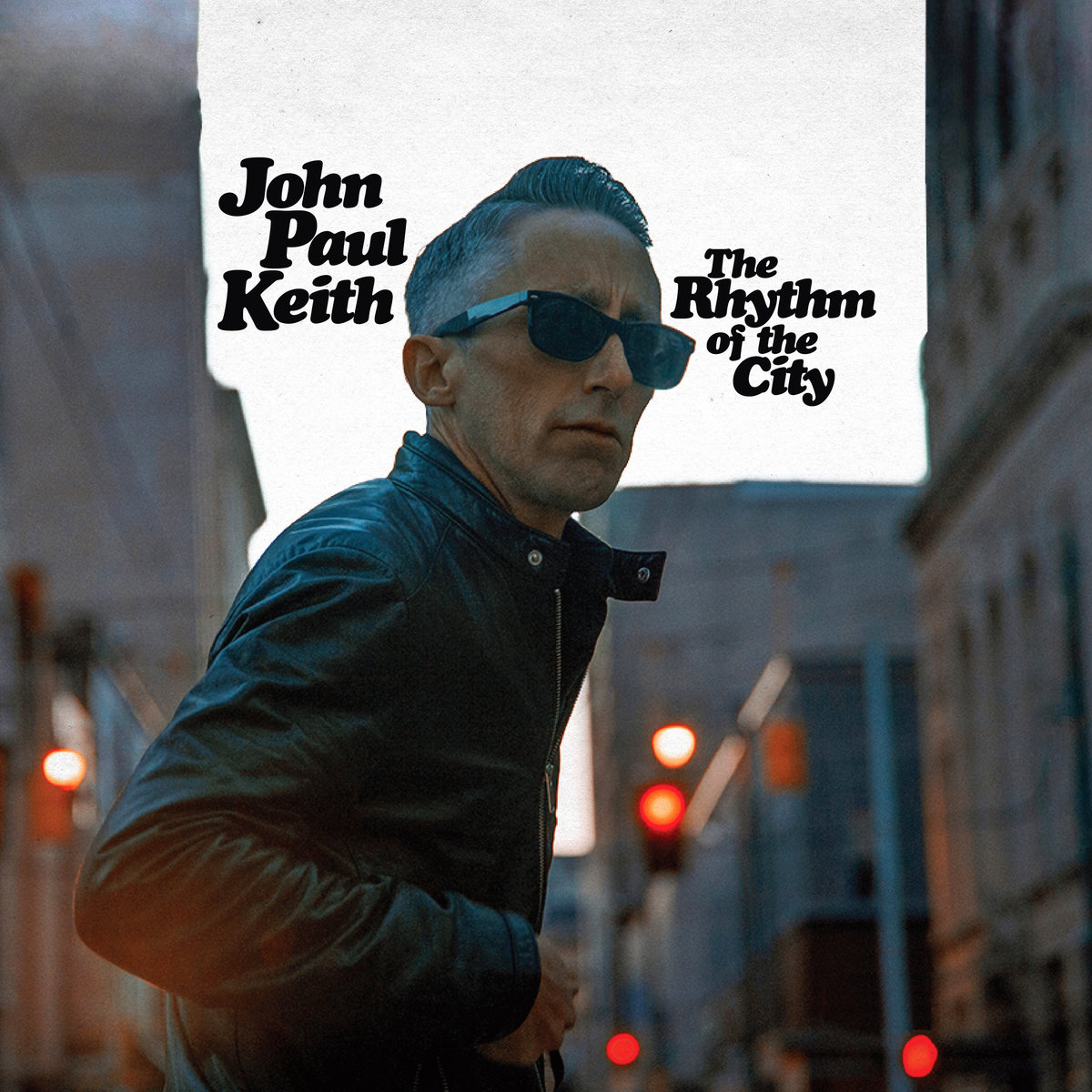
JOHN PAUL KEITH: THE RHYTHM OF THE CITY

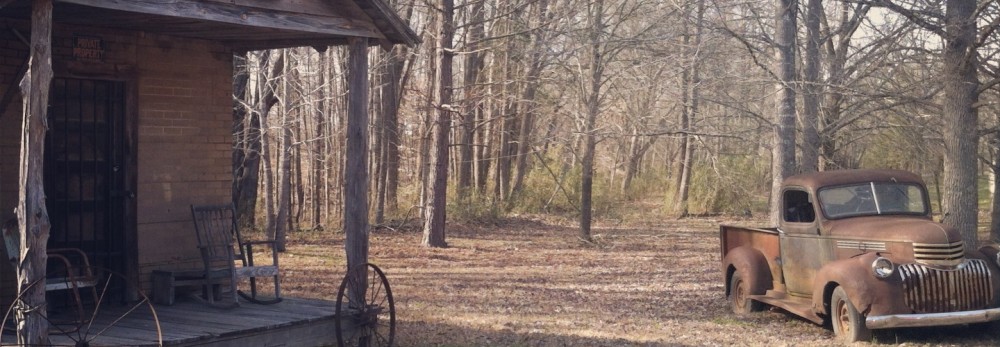

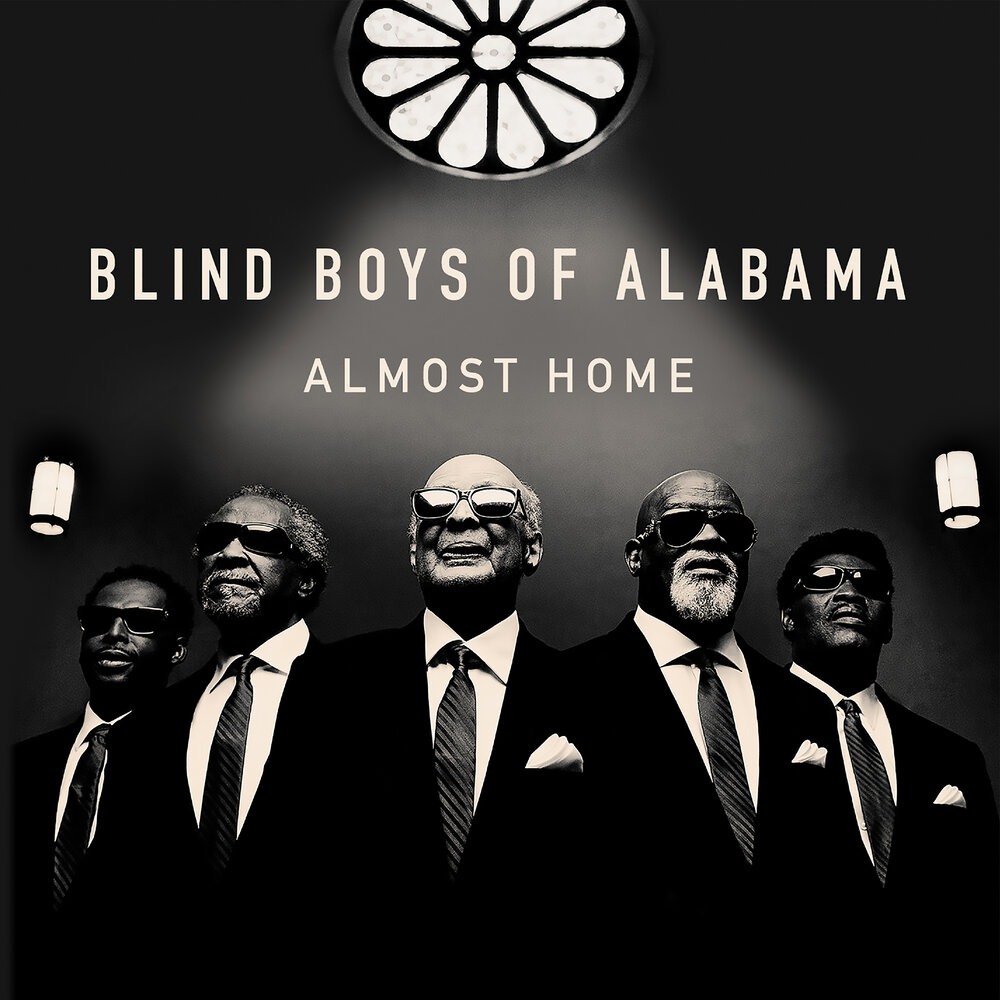
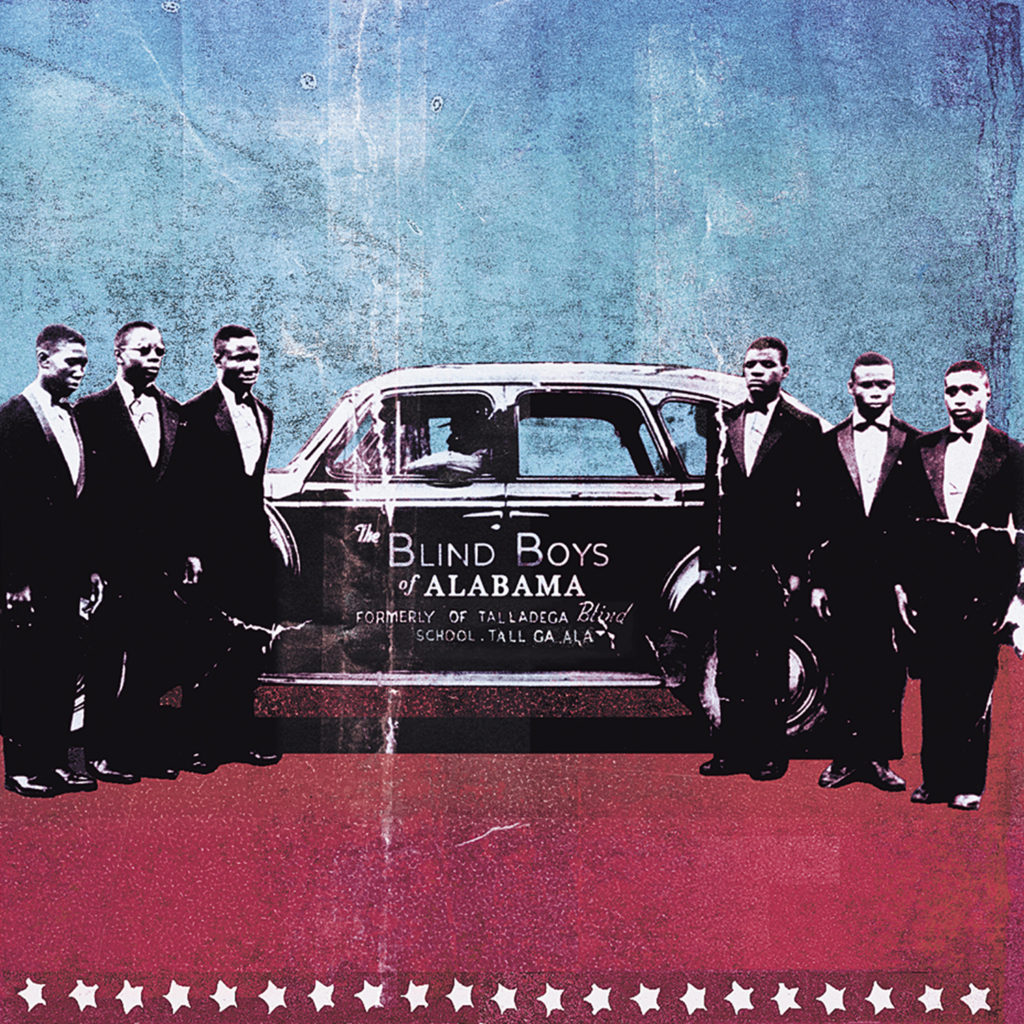
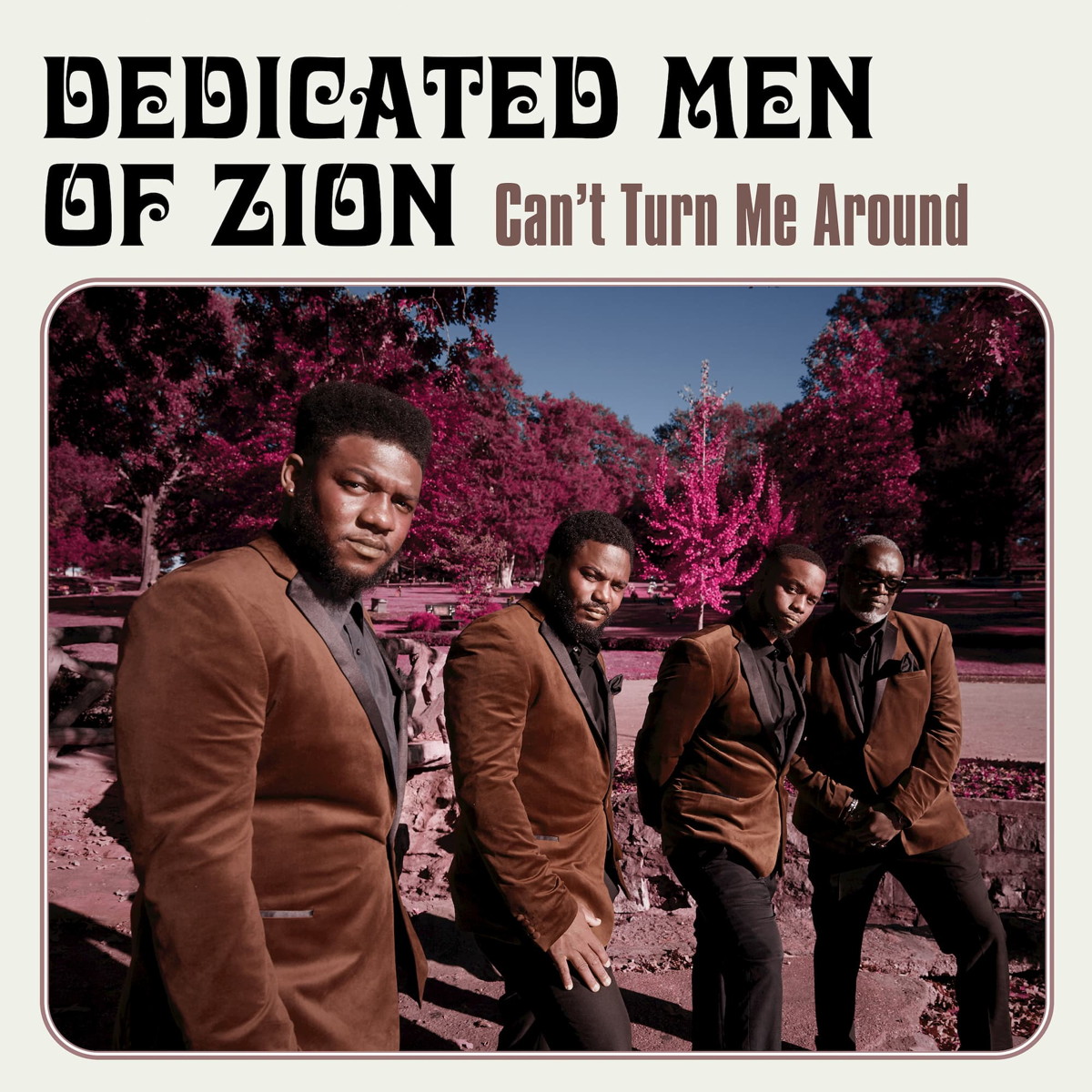
CAN’T TURN ME AROUNDÂ Bible & Tire Records
For fans of Sharon Jones and The Dap Kings, The Blind Boys of Alabama, and The Staple Singers
The new record from the Dedicated Men of Zion reminds us that the lines between traditional gospel and R&B are blurry at best. Filled with foot-stomping rockers and swinging soulful ballads, CAN’T TURN ME AROUND, is just as appropriate for Saturday Night as it is for Sunday morning. Hailing from rural North Carolina the group has gone through a number of lineup changes since it’s incarnation in 2014. In 2018 the group’s current lineup, consisting of Anthony Daniels, Antoine Daniels, Dexter Weaver, and Marcus Sugg caught the attention of The Music Maker Relief Fund. The Music Maker Relief Fund is a non-profit organization that helps musicians in the rural south meet their day-to-day needs and promote their music. Even though the band was already popular regionally, working with the Music Maker Relief fund helped the group reach a larger audience and eventually find the ears of Bruce Watson’s Bible & Tire Record label.
 The bottom line is that The Dedicated Men of Zion’s new record CAN’T TURN ME AROUND is a record that is desperately needed today. It’s inspiring, hopeful, and most of all reminds us that yes, things have been bad before but if we work together we can survive this and make it to the promised land.. whatever you deem that to be.
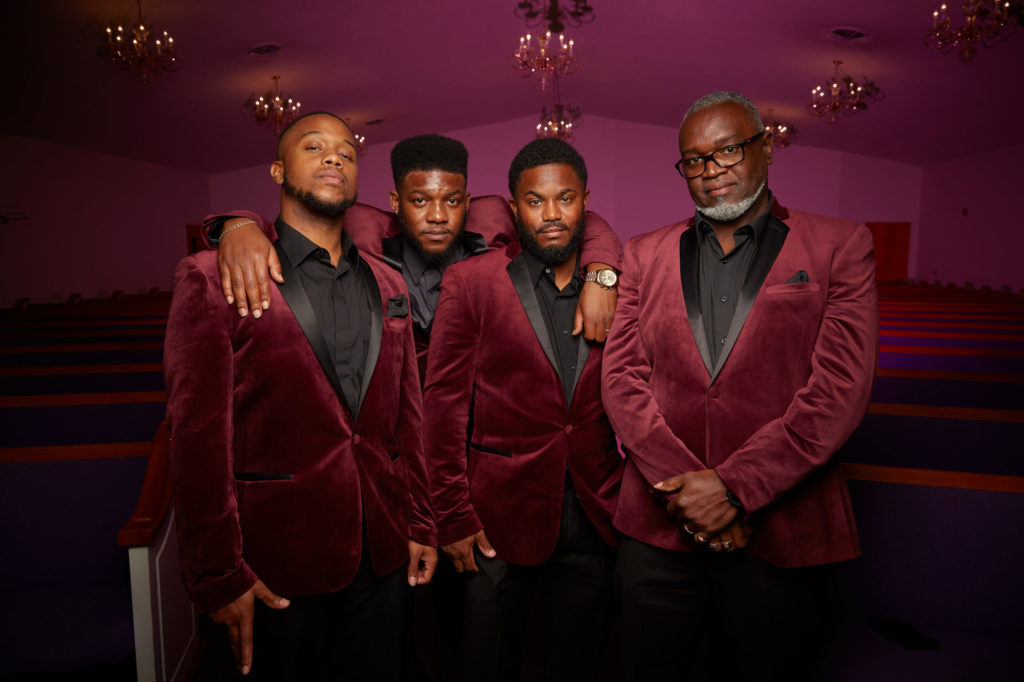
Born in Arkansas in 1915 Sister Rosetta Tharpe influenced Rock and Popular music more then most people know. A young Little Richard got his start by opening for her before anybody knew who he was. Elvis, Johnny Cash, and Bob Dylan all cite Sister Rosetta as a major influence, and during her heyday she performed for stadium sized crowds all over the world. In short, Sister Rosetta was a rockstar before Rock n’ Roll even existed.
 Soul Jazz RecordsÂ
For fans of James Brown, Irma Thomas, Tina Turner, and The Meters
When you think of the greatest Soul singers of all time you probably don’t think of the name Betty Harris. Despite being as talented as superstars like Tina Turner and Etta James, Ms. Harris isn’t a household name. During the 1960’s she only released a handful of singles and only a few of those became hits. She then retired in 1970 to focus on her family. While her music has become very popular among Soul record collectors and aficionados over the years, it has never reached a mass audience. Fortunately the good folks at Soul Jazz Records are trying to change that with their recent release, BETTY HARRIS: THE LOST QUEEN OF NEW ORLEANS SOUL!
THE BEGINNING
Born in Orlando FL, in 1941 (or possibly 1939) Ms. Harris started out singing gospel music when she was very young. Part of a very religious family, Harris wasn’t allowed to sing secular music while under her parent’s roof. She left home in her late teens to perform Blues and Soul music in California. After several years on the West Coast she moved to New York City where she hooked up with songwriter/producer Bert Berns. In 1963 she recorded her first hit, “Cry To Me”, a slow rendition of a tune singer Solomon Burke had recorded a year earlier. The song became a big hit for Harris and actually surpassed Burke’s original recording on the national charts! The success of “Cry To Me” inspired a few more releases from the Berns/Harris team including a fiery number called “Mo Jo Hannah”. Unfortunately none of these other recordings because hits and Burns and Harris went their separate ways.
WORKING WITH ALLEN TOUSSAINT
Shortly after her relationship with Burt Berns ended Harris met master Musican/Songwriter Allen Toussaint and began recording for his New Orleans based record label Sansu. Even though only one of the singles she recorded for Sansu charted nationally, the recordings she made while at the label are classic and make up the material on BETTY HARRIS: THE LOST QUEEN OF NEW ORLEANS SOUL. The music on this compilation is all killer-no-filler and ranges from classic R&B to hard funk! While it’s Harris’ larger-then-life vocals that commands the most attention on these songs we must also note that the backing band is made up of some of New Orleans’ finest musicians, including members of the legendary Funk group, The Meters. Like the Funk Brothers at Motown or Booker T. & The MG’s at STAX, The Meters are as important to the recording as the artist they are supporting. Finally, we must also acknowledge that none of these recordings would’ve been possible without master musician/producer Allen Toussiant behind the board. Not only do his talents as a producer take these recordings to another level, he also wrote almost all of these songs!
There was a time when all an artist would need to make a good recording was their instrument, a microphone, and a tape recorder. In fact, some of the greatest and most influential recordings of our time were made in rural areas in the back of small country stores or small cabins on equipment that was powered a car battery.  Known as “field recordings”, these recordings were usually done by folklorists determined on documenting maters of American Roots music in a natural setting.
Personally, some of my favorite field recordings where done by music historian George Mitchell. Born in Coral Gables, Florida and raised in Athens, Georgia, Mr. Mitchell has recorded hundreds of hours of music, mostly by musicians who would’ve never been heard outside of their living room if it weren’t for him. He was the first to record Hill-Country Blues guitarist R.L. Burnside in 1967 in Mississippi, a recording session that yielded some the most heart-felt acoustic Blues ever recorded. He also was responsible for some excellent late-in-career recordings of Blues legends Fred McDowell and Furry Lewis.
In 2008 Fat Possum records complied a large number of George Mitchell’s recordings for a massive 7-disc box-set simply titled “The George Mitchell Recordings Vol. 1-45”. Â While the amount of music in this collection may have been perfect for the Blues connoisseur wanting to get completely stuffed on Mitchell’s field recordings, the collection lacked a certain intimacy you get when you focus on just one single artist’s session. Â Thankfully, the good people at Fat Possum/Big Legal Mess Records realize this and over the years have released entire sessions from individual artists recorded by George Mitchell. Below are some of my very favorites…Â No studio tricks, no auto-tune, just a musician and their music.
R.L. Burnside First Recordings Recorded in 1967
A popular style of Blues played by musicians from Northern Mississippi, “Hill Country Blues” focuses more on creating a hypnotic rhythm and less on following a specific chord progression. While musicians such as Otha Turner, Jesse Mae Hemphill and Mississippi Fred McDowell (actually from Tennessee) are masters of this style, the two best known Hill Country Blues musicians are Junior Kimbrough and R.L. Burnside. Â Both Kimbrough and Burnside made their first recordings in the 1960’s with the latter recording for George Mitchell in 1967.
George Mitchell first caught wind of R.L. Burnside while recording another Hill Country Blues master, Otha Turner.  It was Turner who suggested to Mitchell that if he wanted to hear someone who could REALLY PLAY, he should check out his neighbor R.L. Burnside.  Although both Turner and Burnside where unknown to the outside world at the time they were very popular in their respective communities and masters of the their instrument.
During his session for Mitchell, Burnside performed excellent versions of Hill Country standards, “Poor Black Mattie”, Â “Goin’ Down South” and “Rollin’ and Tumblin”. He also played a slow eerie-blues entitled “Just Like A Bird Without A Feather”, which is the best track on this wonderful album.
JOE CALLICOT Ain’t Gonna Lie To You Recorded in 1967
Recorded in 1967 and reminiscent of recordings by fellow guitarist Mississippi John Hurt,  AIN’T GONNA LIE TO YOU is a mix of Blues standards and Gospel numbers.  Also like Hurt, Joe’s voice isn’t the strongest in the world but yet it wonderfully complements his soft finger-picking guitar style. A perfect example of this is Joe’s beautiful rendition of the Folk standard “Frankie and Albert”.  While Joe’s career actually began in the 1920’s and included recording sessions and performances outside of Mississippi he was never a household name and even gave up music in the 1940’s. Fortunately for us he returned to recording after meeting George Mitchell in 1967.
J.W. WARREN Life Ain’t Worth Livin’ Recorded in 1981 & 1982
 J.W. Warren was born in 1921 in Enterprise, Alabama.  Like many of the musicians recorded by George Mitchell, Warren was a farmer who mostly performed just for friends at parties and in local juke joints. The recordings on LIFE AIN’T WORTH LIVIN’ were done in Warren’s own home in Alabama by Mitchell on September 15th, 1981 and in March 27th, 1982.  Musically, Warren stuck mostly to traditional-sounding Country Blues. His powerful voice is best displayed on the tune “Hoboing Into Hollywood” and at times bares resemblance to the voice of Country Blues legend Bukka White.  Also like White, J.W. Warren was a slide guitar player who’s raw playing style helped him obtain local notoriety. He would scrap his jack-knife against the strings of his guitar to create the sound of a slide (documented here on the recording “My Mind Gets To Wandering”). Mostly a homebody, Warren never toured and rarely travelled out of his hometown. He lived out his final years at home in Ariton, AL, passing away on August 15th, 2003. Fortunately for us we can remember him through these excellent recordings.
Few people were better at discovering musical talent in Louisiana during the 1950’s and 60’s then J.D. Miller and Eddie Shuler. Instrumental in bringing styles such as Zydeco, Cajun, and Swamp Pop to the ears of the world, they each made their mark by recording and producing local unknown talent. Miller recorded the artists he discovered then usually sold the tapes to other record labels while Shuler recorded and released music on his own Goldband label. Now, thanks to the fine people at ACE Records, there are TWO new excellent compilations that focus on the Blues recordings produced by Miller and Shuler.
Part of ACE’s “By The Bayou” series, these discs, entitled Bluesin’ By The Bayou and Bluesin’ By The Bayou: Rough & Tough, are both supreme examples of the Louisiana Blues scene during the 50’s and 60’s. Sometimes known as “Swamp Blues” the music on these recordings is a mix of down-home Country Blues with a few touches of R&B, Zydeco, and Cajun Music thrown in for good measure. These recordings are essential for any Blues or Roots Music fan’s record collection. This is as greasy as it gets!
Some of the artists featured on Bluesin’ On The Bayou
SLIM HARPO
Born in Baton Rouge, Louisiana, Slim Harpo was one of the most successful and best known of all Swamp Blues artists. His songs “I’m A King Bee” (1957) and “Shake Your Hips” (1961) were both covered by The Rolling Stones and he had a number one hit in 1966 with “Baby Scratch My Back”. Included on Bluesin’ By The Bayou: Rough and Tough are his single “My Little Queen Bee”, an answer to his first hit “King Bee”, and a cover of Lonesome Sundown’s “Bought Me A Ticket”
LONESOME SUNDOWN
Lonesome Sundown was born Cornelius Green in 1931 on a plantation in Donaldsville, Louisiana. Well versed in a variety of musical styles, Lonesome Sundown’s music ranged from down-home Blues to Country to Roll-licking R&B. He was never a household name but nevertheless was responsible for some of the most exciting music to come out of Louisiana in the 50’s and 60’s. Included on Bluesin’ By The Bayou: Rough and Tough are romping versions of his songs “I’m Gonna Stick To You Baby” and “If Anybody Asks You”. Both songs are essential listening for any Blues fan.
LIGHTNIN’ SLIM
One of the most important and influential bluesmen to ever come out of Louisiana, Lightnin’ Slim was actually born in St. Louis, Missouri. He moved to Louisiana when he was a teenager and soon picked up the guitar and began playing in clubs. In 1954 he recorded “Bad Luck Blues” with J.D. Miller and regularly performed with fellow Louisiana bluesmen Lonesome Sundown, Lazy Lester, and Slim Harpo. Included here in this collection is his song “Trip To Chicago” which talks about the groups “adventure” to play a gig in the Windy City! Fellow Louisiana bluesman Buddy Guy credits Lightnin’ Slim as one of his biggest influences.
LAZY LESTER
A talented multi-instrumentalist, Lazy Lester performed on many recordings produced by J.D. Miller as both a front-man and backup musician. His first major his was the his 1958 release “I’m A Lover Not A Fighter”. Originally written by J.D. Miller, this song put Lester on the map and was coupled with the b-side “Sugar Coated Love”. Still an excellent performer to this day, he still tours nationally and is a favorite at Blues festivals. He was inducted into the Blues Hall Of Fame in 2012. UPDATE 2018: Sadly Lester passed away on August 28, 2018. He was 85
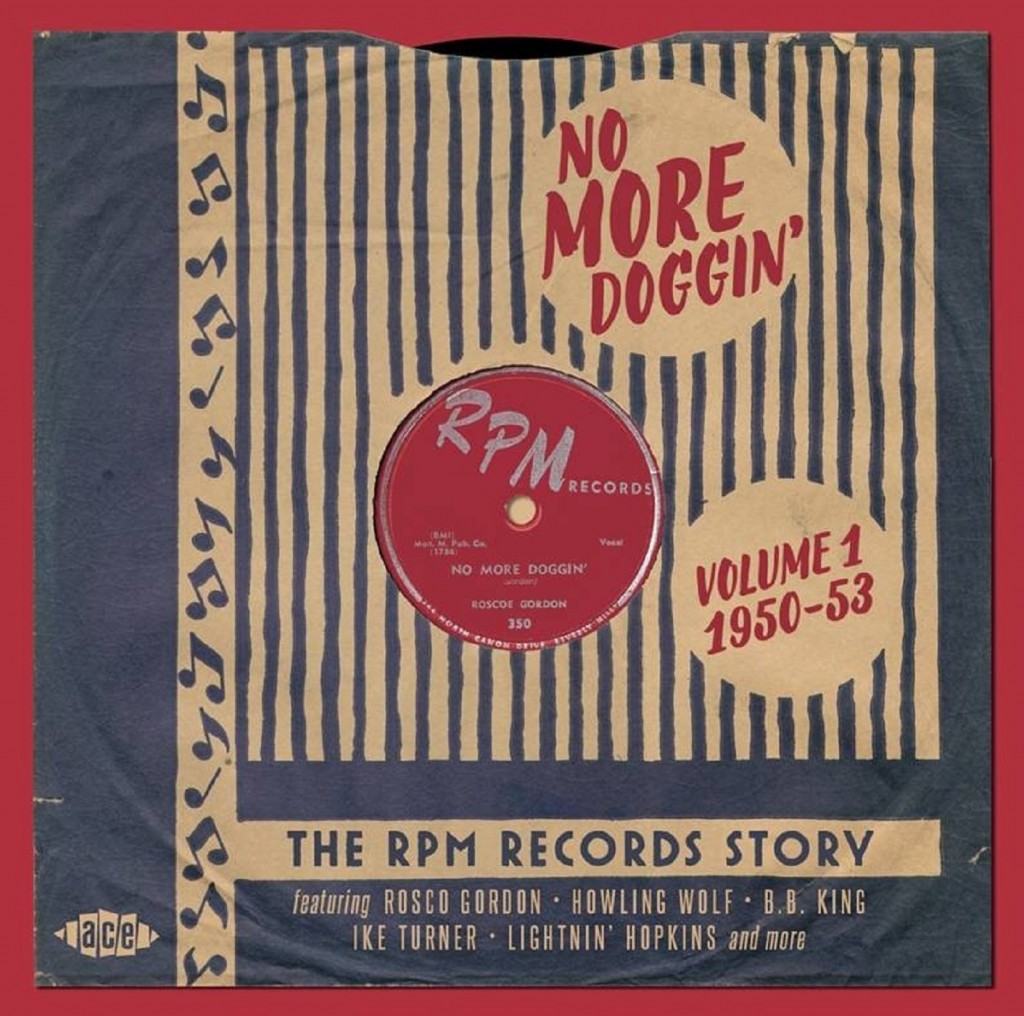 Full of Jump Blues, early R&B, and down-home Country Blues, the double-disc collection No More Doggin’ The RPM Records Story Vol. 1 might be one of the best introductions to early 50’s blues ever. Compiled by the good folks at ACE Records, this collection covers the early years of RPM Records and features well know artists like B.B. King, Howlin’ Wolf, and Lightnin’ Hopkins.
Full of Jump Blues, early R&B, and down-home Country Blues, the double-disc collection No More Doggin’ The RPM Records Story Vol. 1 might be one of the best introductions to early 50’s blues ever. Compiled by the good folks at ACE Records, this collection covers the early years of RPM Records and features well know artists like B.B. King, Howlin’ Wolf, and Lightnin’ Hopkins.
Started in 1950 by the Bihari Brothers, RPM was meant to be a subsidiary of the Bihari’s very popular label Modern Records. After initially having lots of success with Modern, the Bihari’s began having trouble getting their records played on the radio due to stations not wanting to play too many sides from any one label. So in order to get their product on the airwaves the Bihari’s started a number of subsidiary labels. Probably the most popular of Modern’s subsidiary labels, RPM introduced the world to a Memphis radio DJ by the name of Riley B. King. Eventually known as “B.B. King”, Riley came to the attention of the Bihari Brothers thanks to their working relationship with Memphis talent scout/producer Sam Phillips. Phillips at the time was recording local artists with his Memphis Recording Service then sending the masters to labels like Modern and Chess. Trough their relationship with Phillips, the Bihari’s got hooked up with some of the best talent in Memphis. Unfortunately their relationship ended when Phillips and the Bihari’s had a disagreement over a B.B. King session and went their separate ways. Fed up with feeding product he recorded to other labels, Phillips then decided to start his own label, Sun Records. As for Modern/RPM, even without the help of Phillips the label still went on to produce many more hits, including B.B. King’s breakthrough hit record Three O’Clock Blues.
No More Doggin’ The RPM Records Story Vol. 1 starts off with the Dixieland-style track “Alabama Bound”. Sung by Adele Francis, this tune was RPM’s first release in 1950. Other stand out tracks are Sonny Blair’s down-and-out blues ballad “Glad To Be Back Home”, B.B. King’s “Other Night Blues, and Howlin’ Wolf’s “Riding In The Moonlight”. My personal favorite recordings on this collection are the Lightnin’ Hopkins tracks. Excellent versions of “Bad Luck and Trouble” and “Another Fool In Town” showcase Hopkins at his bluesy best, while “Jake Head Boogie” shows that he also could ROCK when he wanted to. Another nice surprise on this collection is the tune “It’s Time For Lovin’ To Be Done”. Performed by Detroit Bluesman Little Eddie Kirkland, the song features uncredited backing vocals by the great John Lee Hooker!
As usual the folks at ACE left no stone unturned when putting this collection together. Included in this collection is a nice history of RMP records as well as a few words on all the performers. All of the albums 52 tracks sound crisp and clear thanks to the extra care shown by the folks who did the remastering. If you want to hear where Rock N’ Roll really began this collection is for you.
Mavis Staples is a living legend. Over the past 60 years she’s not only brought Gospel music to the masses but she’s also been a voice of hope and strength for those fighting for Civil Rights. Her career started in Chicago during the late 1940’s when she and her siblings would perform in churches alongside their father, the legendary Roebuck “Pops†Staples. With a sound that was rooted in Southern Gospel and Delta Blues “The Staple Singers†soon became local favorites and in the early 50′s began recording sides for labels like VeeJay, Riverside, and Checker. In addition to gospel music fans the band was also embraced by the folk music scene during the folk revival of late 50′s and early 60′s. It was during this time that the band became very active in the civil rights movement and regularly performed at rallies and events hosted by Dr. Martin Luther King.
In the late 60′s and early 70′s the music scene was changing and the band changed right along with it. They signed with the legendary STAX Records and under the guidance of STAX A&R man Al Bell they started adopting more of a Soul-Gospel style. Their music might have become a little funkier but it still contained the same message of hope, love and compassion. Songs like “Respect Yourself“, and “I’ll Take You There†made the band a household name and catapulted them into stardom. Unfortunately, due to some questionable business decisions by Al Bell STAX Records filed for bankruptcy in 1975 and was forced to shutdown.
The Staples pressed on and over the next several years put out several releases for a variety of different labels. While they had success with their 1975 album LET’S DO IT AGAIN the group mostly was out of the spotlight until the 1990’s. During the 2000’s Mavis continued to perform and release solo albums. Paired with producers such as Ry Cooder and Wilco’s Jeff Tweedy, these records introduced Mavis to a whole new audience. In 2013 her Jeff Tweedy-produced album You Are Not Alone won a Grammy for “Best Americana Album”.
This year Mavis will turn 75 years young and she’s just as popular as ever. People all over the world still cram into venues to see her perform and she’s a regular musical guest on late-nite TV. Her music still carries with it a message of hope and tolerance. A message that reminds us that even though there have been victories in the struggle for civil rights, the fight is far from over.
STAPLE SINGERS/MAVIS STAPLES SUGGESTED LISTENING
The Staple Singers: Uncloudy Day (VeeJay)
The Staple Singers: Freedom Highway (Epic/Legacy)
The Staple Singers: Be Attitude: Respect Yourself (Stax)
The Staple Singers: The Staple Swingers (Stax)
The Staple Singers: The Best of The Staple Singers (Stax)
Mavis Staples: We’ll Never Turn Back (Anti) produced by Ry Cooder
Mavis Staples: You Are Not Alone (Anti) produced by Jeff Tweedy
Mavis Staples: One True Vine (Anti) produced by Jeff Tweedy